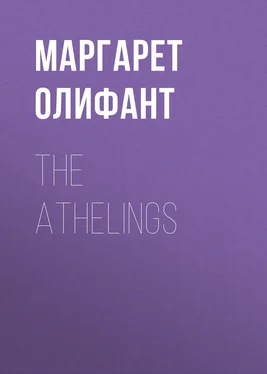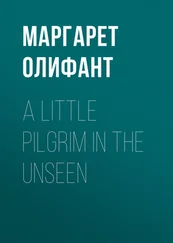Маргарет Олифант - The Athelings
Здесь есть возможность читать онлайн «Маргарет Олифант - The Athelings» — ознакомительный отрывок электронной книги совершенно бесплатно, а после прочтения отрывка купить полную версию. В некоторых случаях можно слушать аудио, скачать через торрент в формате fb2 и присутствует краткое содержание. Жанр: foreign_prose, literature_19, foreign_antique, на английском языке. Описание произведения, (предисловие) а так же отзывы посетителей доступны на портале библиотеки ЛибКат.
- Название:The Athelings
- Автор:
- Жанр:
- Год:неизвестен
- ISBN:нет данных
- Рейтинг книги:5 / 5. Голосов: 1
-
Избранное:Добавить в избранное
- Отзывы:
-
Ваша оценка:
- 100
- 1
- 2
- 3
- 4
- 5
The Athelings: краткое содержание, описание и аннотация
Предлагаем к чтению аннотацию, описание, краткое содержание или предисловие (зависит от того, что написал сам автор книги «The Athelings»). Если вы не нашли необходимую информацию о книге — напишите в комментариях, мы постараемся отыскать её.
The Athelings — читать онлайн ознакомительный отрывок
Ниже представлен текст книги, разбитый по страницам. Система сохранения места последней прочитанной страницы, позволяет с удобством читать онлайн бесплатно книгу «The Athelings», без необходимости каждый раз заново искать на чём Вы остановились. Поставьте закладку, и сможете в любой момент перейти на страницу, на которой закончили чтение.
Интервал:
Закладка:
“But perhaps”—said Agnes.
“Perhaps—nonsense,” cried Mamma indignantly; “he must not come in here, that I am resolved. Go and tell Susan we will sit in the best room to-night.”
But Agnes meditated the matter anxiously—perhaps, though she did not say it—perhaps to be a great literary personage, it was necessary to “find good in everything,” after the newest fashion, like Mr Endicott. Agnes was much puzzled, and somewhat discouraged, on her own account. She did not think it possible she could ever come to such a sublime and elevated view of ordinary things; she felt herself a woeful way behind Mr Endicott, and with a little eagerness looked forward to his visit. Would he justify himself—what would he say?
CHAPTER XVIII.
COMPANY
The best room was not by any means so bright, so cheerful, or so kindly as the family parlour, with its family disarrangement, and the amateur paperhanging upon its walls. Before their guests arrived the girls made an effort to improve its appearance. They pulled the last beautiful bunches of the lilac to fill the little glass vases, and placed candles in the ornamental glass candlesticks upon the mantelpiece. But even a double quantity of light did not bring good cheer to this dull and solemn apartment. Had it been winter, indeed, a fire might have made a difference; but it was early summer—one of those balmy nights so sweet out of doors, which give an additional shade of gloom to dark-complexioned parlours, shutting out the moon and the stars, the night air and the dew. Agnes and Marian, fanciful and visionary, kept the door open themselves, and went wandering about the dark garden, where the summer flowers came slowly, and the last primrose was dying pale and sweet under the poplar tree. They went silently and singly, one after the other, through the garden paths, hearing, without observing, the two different footsteps which came to the front door. If they were thinking, neither of them knew or could tell what she was thinking about, and they returned to the house without a word, only knowing how much more pleasant it was to be out here in the musical and breathing darkness, than to be shut closely within the solemn enclosure of the best room.
But there, by the table where Marian had maliciously laid his paper, was the stately appearance of Mr Endicott, holding high his abstracted head, while Harry Oswald, anxious, and yet hesitating, lingered at the door, eagerly on the watch for the light step of which he had so immediate a perception when it came. Harry, who indeed had no great inducement to be much in love with himself, forgot himself altogether as his quick ear listened for the foot of Marian. Mr Endicott, on the contrary, added a loftier shape to his abstraction, by way of attracting and not expressing admiration. Unlucky Harry was in love with Marian; his intellectual cousin only aimed at making Marian in love with him .
And she came in, slightly conscious, we admit, that she was the heroine of the night, half aware of the rising rivalry, half-enlightened as to the different character of these two very different people, and of the one motive which brought them here. So a flitting changeable blush went and came upon the face of Marian. Her eyes, full of the sweet darkness and dew of the night, were dazzled by the lights, and would not look steadily at any one; yet a certain gleam of secret mischief and amusement in her face betrayed itself to Harry Oswald, though not at all to the unsuspicious American. She took her seat very sedately at the table, and busied herself with her fancy-work. Mr Endicott sat opposite, looking at her; and Harry, a moving shadow in the dim room, hovered about, sitting and standing behind her chair.
Besides these young people, Mr Atheling, Mr Foggo, and Mamma, were in the room, conversing among themselves, and taking very little notice of the other visitors. Mamma was making a little frock, upon which she bestowed unusual pains, as it seemed; for no civility of Mr Endicott could gain any answer beyond a monosyllable from the virtuous and indignant mistress of the house. He was playing with his own papers as Agnes and Marian came to the table, affectionately turning them over, and looking at the heading of the “Letter from England” with a loving eye.
“You are interested in literature, I believe?” said Mr Endicott. Agnes, Marian, and Harry, all of them glancing at him in the same moment, could not tell which he addressed; so there was a confused murmur of reply. “Not in the slightest,” cried Harry Oswald, behind Marian’s chair. “Oh, but Agnes is!” cried Marian; and Agnes herself, with a conscious blush, acknowledged—“Yes, indeed, very much.”
“But not, I suppose, very well acquainted with the American press?” said Mr Endicott. “The bigotry of Europeans is marvellous. We read your leading papers in the States, but I have not met half-a-dozen people in England—actually not six individuals—who were in the frequent habit of seeing the Mississippi Gazette .”
“We rarely see any newspapers at all,” said Agnes, apologetically. “Papa has his paper in the evenings, but except now and then, when there is a review of a book in it–”
“That is the great want of English contemporary literature,” interrupted Mr Endicott. “You read the review—good! but you feel that something else is wanted than mere politics—that votes and debates do not supply the wants of the age!”
“If the wants of the age were the wants of young ladies,” said Harry Oswald, “what would become of my uncle and Mr Atheling? Leave things in their proper place, Endicott. Agnes and Marian want something different from newspaper literature and leading articles. Don’t interfere with the girls.”
“These are the slavish and confined ideas of a worn out civilisation,” said the man of letters; “in my country we respect the opinions of our women, and give them full scope.”
“Respect!—the old humbug!” muttered Harry behind Marian’s chair. “Am I disrespectful? I choose to be judged by you.”
Marian glanced over her shoulder with saucy kindness. “Don’t quarrel,” said Marian. No! Poor Harry was so glad of the glance, the smile, and the confidence, that he could have taken Endicott, who was the cause of it, to his very heart.
“The functions of the press,” said Mr Endicott, “are unjustly limited in this country, like most other enlightened influences. In these days we have scarcely time to wait for books. It is not with us as it was in old times, when the soul lay fallow for a century, and then blossomed into its glorious epic, or drama, or song! Our audience must perceive the visible march of mind, hour by hour and day by day. We are no longer concerned about mere physical commotions, elections, or debates, or votes of the Senate. In these days we care little for the man’s opinions; what we want is an advantageous medium for studying the man.”
As she listened to this, Agnes Atheling held her breath, and suspended her work unawares. It sounded very imposing, indeed—to tell the truth, it sounded something like that magnificent conversation in books over which Marian and she had often marvelled. Then this simple girl believed in everybody; she was rather inclined to suppose of Mr Endicott that he was a man of very exalted mind.
“I do not quite know,” said Agnes humbly, “whether it is right to tell all about great people in the newspapers, or even to put them in books. Do you think it is, Mr Endicott?”
“I think,” said the American, solemnly, “that a public man, and, above all, a literary man, belongs to the world. All the exciting scenes of life come to us only that we may describe and analyse them for the advantage of others. A man of genius has no private life. Of what benefit is the keenness of his emotions if he makes no record of them? In my own career,” continued the literary gentleman, “I have been sometimes annoyed by foolish objections to the notice I am in the habit of giving of friends who cross my way. Unenlightened people have complained of me, in vulgar phrase, that I ‘put them in the newspapers.’ How strange a misconception! for you must perceive at once that it was not with any consideration of them, but simply that my readers might see every scene I passed through, and in reality feel themselves travelling with me !”
Читать дальшеИнтервал:
Закладка:
Похожие книги на «The Athelings»
Представляем Вашему вниманию похожие книги на «The Athelings» списком для выбора. Мы отобрали схожую по названию и смыслу литературу в надежде предоставить читателям больше вариантов отыскать новые, интересные, ещё непрочитанные произведения.
Обсуждение, отзывы о книге «The Athelings» и просто собственные мнения читателей. Оставьте ваши комментарии, напишите, что Вы думаете о произведении, его смысле или главных героях. Укажите что конкретно понравилось, а что нет, и почему Вы так считаете.












